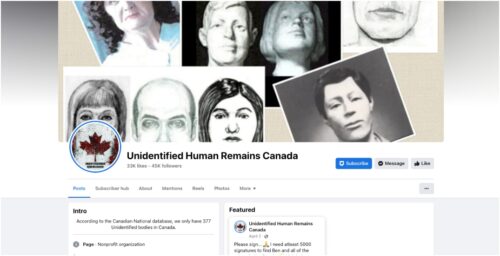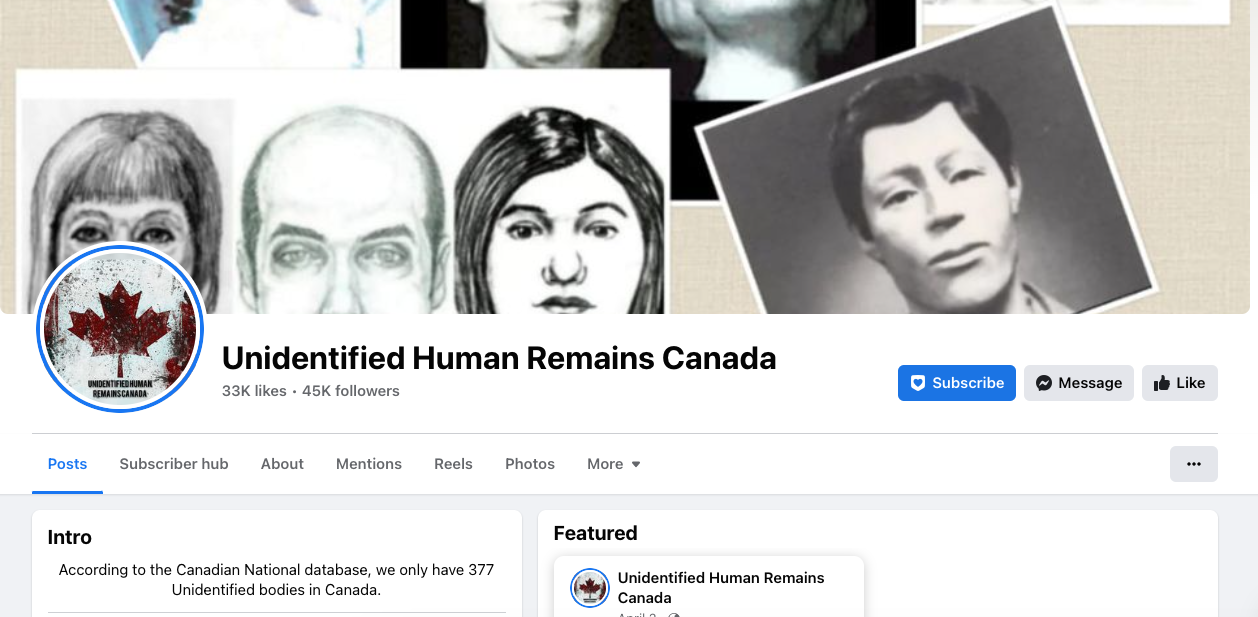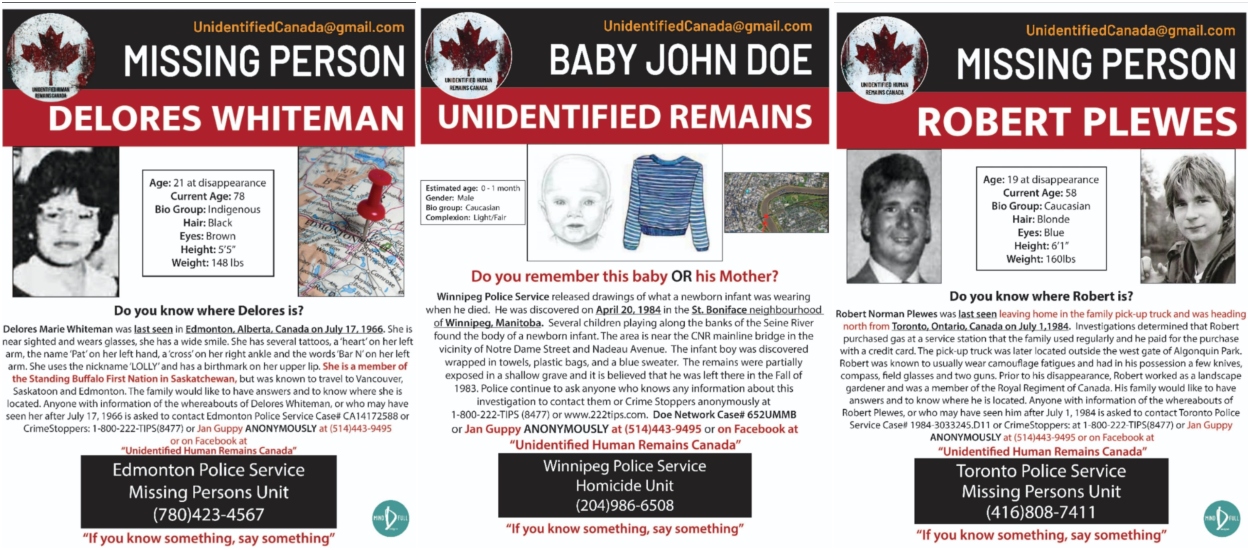This woman is helping solve Canadian cold cases through Facebook

With just a computer and a Facebook page, one Canadian woman is helping police solve cold cases. And she’s not a recreational internet sleuth with a fascination with true crime.
Quebec-based Jan Guppy has a background in sales and marketing, but rather than creating sales strategies, she spends her days helping identify human remains.
Guppy manages the Facebook group Unidentified Human Remains Canada, which helps resolve several cases and continues to work on current ones.
“Since I was a young child, I have always felt the need to speak up for those who could not or did not know how,” she told Daily Hive. So in 2015, Guppy started following Never Forget Me, a Facebook group that focuses on the missing and unidentified in the US.
Jan Guppy with her mother (Supplied)
Eventually, she was asked to become an admin for the group and began sharing Canadian cold cases.
Compared to the National Missing and Unidentified Persons System (NamUs), a centralized system for missing, unidentified, and unclaimed person cases across the US, Guppy recognizes the “huge deficiencies in the Canadian system and databases.”
Forensic and investigative genetic genealogy organizations and groups like Othram and the non-profit DNA Doe Project were helping solve cases with DNA. However, these cases were “almost exclusively in the US,” Guppy noted.
“There also seemed to be major problems with long-term missing persons’ age progressions and the relationships between the RCMP detectives assigned to these cases communicating with families,” said Guppy.
So in 2019, she started the Facebook group Unidentified Human Remains Canada.
That’s when Guppy realized that her 25 years of experience in sales and marketing was going to come in handy.

Unidentified Human Remains Canada/Facebook
“I knew that in order to be successful at creating awareness, I needed to develop strong relationships with law enforcement, case workers, coroners, advocacy groups and networks, genetic genealogists, forensic artists, and, of course, the media,” said Guppy.
She said that families directly reach out to her for help.
“All cases vary, but my goal for a long-term missing will be to ask all the questions for what was done in the past by law enforcement,” explained Guppy.
“Is DNA in the national database? [What about] past tips, current status, age progressions, posters, flyers, searches, etc.? Once all questions have been asked, I will find the holes in the investigation and attempt to fill them.”

Some of the missing person flyers on the Facebook group (Unidentified Human Remains Canada/Facebook)
When it comes to unidentified remains, she asks the coroner’s office for details and more images. Then she cross-references missing person cases for possible matches both in the US and Canada.
One of the cases that Guppy has helped to resolve was identifying, Johnnie B. Smith, a 30-year-old American whose remains were found on the shores of the Valdes Islands in BC in 2018. He was last seen on a fishing boat in Alaska.
“Due to the fact that Johnnie was a US citizen, I had to reach out to the FBI to get them involved in obtaining DNA,” she stated in the post. “The BC coroner was not willing to release the results to the family. In August 2019, the FBI confirmed a positive ID.”
Recently, Ontario Provincial Police (OPP) announced that they’ve identified a suspect in the 1975 murder of Jewell “Lalla” Langford (née Parchman). For decades, she was simply known as the Nation River Lady (the river where her remains were found) until DNA testing helped identify her.
“This is a case that I have been following with the administrators at the DNA Doe Project for almost a decade,” said Guppy. “I am forever grateful for their involvement. We can not solve our unidentified cases without the use of DNA and investigative genetic genealogists.”


















